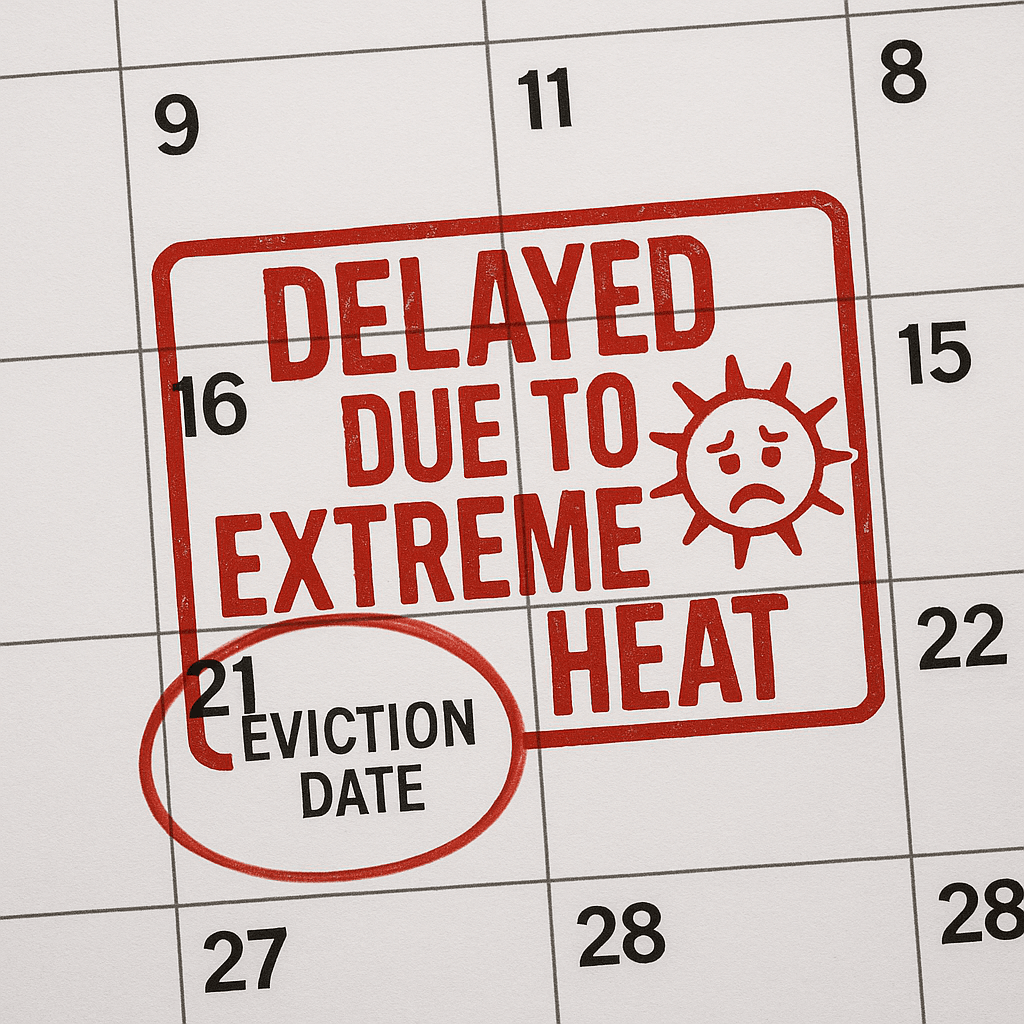Managing Evictions in Cook County Amidst Heatwaves
Understanding the Challenges of Evictions During Heatwaves
Managing evictions in Cook County during heatwaves presents unique challenges for landlords, tenants, and local authorities. The combination of soaring temperatures and housing insecurity can lead to dire consequences for affected individuals and families. It is crucial to approach the situation with sensitivity and awareness of the potential health risks involved.
Heatwaves can exacerbate the already stressful process of eviction, increasing the vulnerability of those without stable housing. People facing eviction are often forced to find temporary accommodations, which may lack adequate cooling options, further endangering their health. This highlights the importance of implementing supportive measures to protect residents during extreme weather conditions.

Sheriff's Discretion and Potential Delays
While court proceedings to obtain an eviction order generally move forward without issue regardless of the weather, the actual execution of that order by the Cook County Sheriff's Department can be significantly impacted by extreme conditions, particularly heat waves.
Evictions are typically conducted Monday through Friday between 8 a.m. and 2 p.m. however, the Cook County Sheriff's Office may cease the execution of eviction orders relating to residential real estate when outside temperatures are 15 degrees Fahrenheit or colder, or whenever, regardless of outside temperature, extreme weather conditions endanger the health and welfare of those to be evicted. This includes situations where a Heat Index Warning is in effect. This means that while a landlord's court order for possession remains valid, its enforcement by the Sheriff's Department might be delayed or rescheduled due to the heat.

Delays Impact on Order for Possession Validity
Adverse weather conditions, such as extreme heat, have been known to cause delays in the enforcement of Forcible Entry and Detainer Orders for Possession. Landlords should be advised that such delays may cause their Order for Possession to expire prior to being executed by the Cook County Sheriff's Office. Therefore, it is crucial for landlords to review to ensure that all Orders of Possession remain enforceable. If an eviction is postponed due to weather, it will be rescheduled as soon as possible.
Eviction scheduling information is accessible on the Cook County Sheriff's Website, where landlords can view the schedule for the current and next business day. The Plaintiff or their attorney will generally receive a telephone call from the Sheriff's Office one working day prior to their eviction to notify them of the scheduled date and time. Maintaining an accurate and legible telephone number for contact is necessary to prevent delays or cancelations in the enforcement of an eviction.
If an eviction is postponed due to weather, it may be rescheduled as soon as possible. However, if an eviction is "called-off" at the eviction site, or if the plaintiff or their representative fails to appear on the day of the eviction, a non-refundable re-scheduling fee may be charged, and an eviction may not be re-scheduled until this fee has been paid.

Exclusive Authority of the Cook County Sheriff
It is important for landlords to remember that Illinois law requires the Cook County Sheriff to enforce evictions in Cook County, and they are the only entity authorized to evict a tenant.

Conclusion: A Collective Effort for Safer Evictions
Managing evictions in Cook County amidst heatwaves requires a collective effort from landlords, tenants, community organizations, and local authorities. By prioritizing the health and well-being of vulnerable populations, stakeholders can work together to create safer eviction processes that mitigate the risks associated with extreme weather conditions.
Ultimately, fostering cooperation and understanding between all parties involved can lead to more sustainable solutions that benefit both individuals and communities. As climate change continues to impact weather patterns, it is crucial to adapt our approaches to eviction management and prioritize the needs of those most affected.
